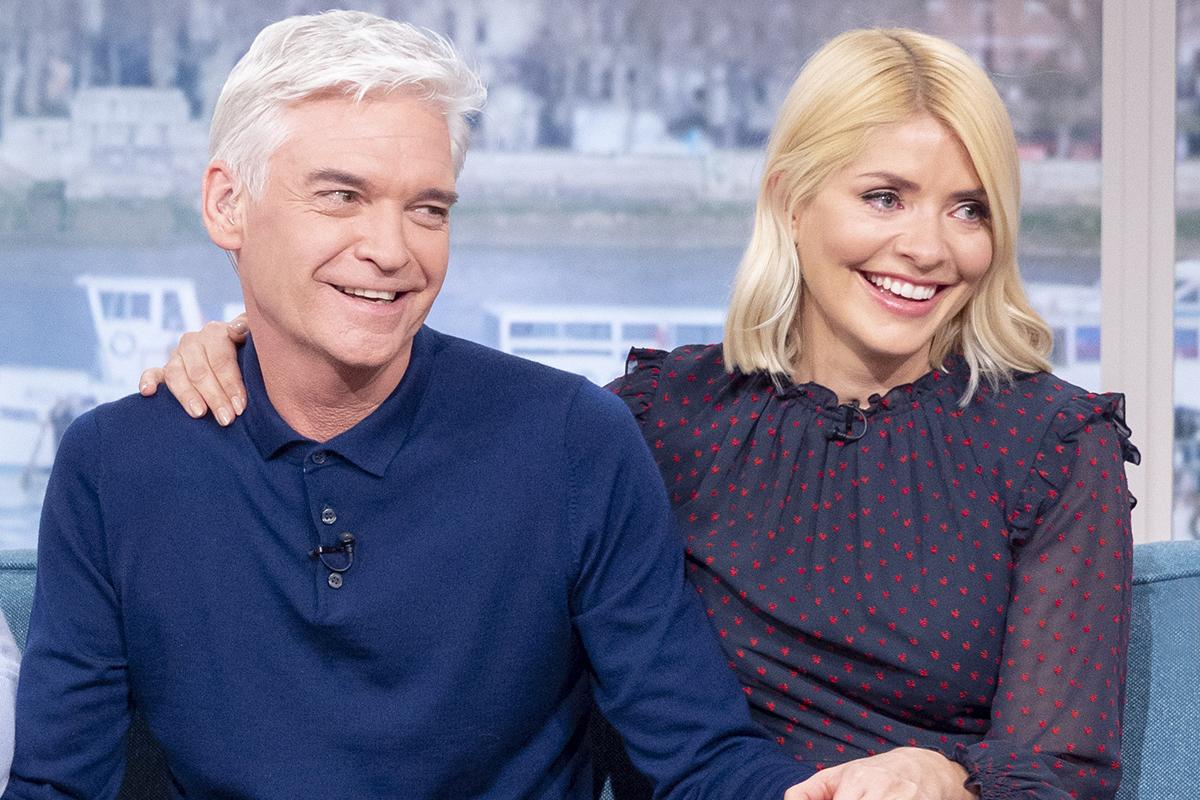Frankly, I’m unsurprised it’s taken Phillip Schofield this long to come out
Many gay people who grew up in the Seventies and Eighties hid their sexuality – perhaps even from themselves, writes Shappi Khorsandi


The expression “openly gay” never sat right with me. You might “openly” shoplift or “openly trespass” or “openly” pee in a public place (I have only ever done two of these things). It’s only of note if you are “openly” doing something you shouldn’t be doing or be seen doing. I look forward to the day when “openly gay” makes as much sense as “openly blonde” or “openly popping to the shops” or “openly tap dancing”. I am now “openly” labouring my point.
Today, Phillip Schofield, in a touching statement, told us all that he is gay. He’s been married to his wife for 27 years, has two grown-up daughters and asked for “kindness”.
I got a little teary. Not because I’m sad he is gay, of course, but because it was such a big fat reminder of how ghastly we have made it for gay people to be themselves.
Phillip Schofield spent his youth in a society where unkindness towards gay people was openly tolerated and worked in a profession which accepted he could speak meaningfully to a glove puppet, but being out would have been considered too much for viewers.
I remember reading in magazines about how he got his job. He talked about how he’d known TV presenting was the only thing he’d ever wanted to do, so he wrote endless letters to producers and didn’t give up until he got somewhere. As a young teen, hearing him talk about his ambition inspired me to pursue my own hard-to-get-into profession (which, and I’m preempting responses in the comment section, I’m sure will seem like a terrible shame to some).
Schofield, like so many in showbusiness, knew that coming out would probably spell the end of his career. Or even if it wasn’t the end, Eighties sensibilities would have meant that his sexuality would have become the sum total of his identity to some viewers, and to some quarters of the media. At that time, “pervert” and “poof” were insults meted out to gay people – and the law saw nothing wrong with that.
Many of my own friends and acquaintances, when I dated a woman, treated it as though it were a sort of kink I had, one they’d insist they’d never try. It’s amazing how many heterosexual women felt the need to tell me: “I couldn’t kiss a woman. Unless it was, like, Michelle Pfeiffer, and I was really drunk.”
I imagine it’s hard for younger people to understand how bold people were not so long ago in expressing their disgust for LGBTQ+ folk. A beautician waxing my legs when I was 18 made idle chat with me, saying, “The worst thing about this job is if I think the person I’m waxing is a lesbian. Can you imagine? Makes my flesh crawl.” Perhaps she thought ripping the hairs out of each other’s skin was how lesbians made love (some years later, I could have reassured her that it was not).
Like me, Phillip Schofield would have grown up with teachers who – since homophobia tarred gay people with the same brush as paedophiles – had to hide their sexuality. Many gay people at that time did – perhaps even from themselves. You can tell yourself repeatedly that what you’re feeling is normal, but if you have been raised in a society in which homophobia is ingrained, it can take years, decades even, for you to take the leap of faith and tell people you are gay.
On social media, jokes at Schofield’s expense are rife – as are snide comments about how the presenter is no hero, about how his family has suffered. But thankfully, comments supportive of Schofield are drowning out their homophobia.
This week at an event held by Intelligence Squared and gal-dem magazine, I read out a letter to my younger self. Writing it was an incredibly cathartic experience, even if I wasn’t going to read it to anyone. I heartily recommend writing to yourself when you were younger – perhaps when you were a kid, or a teenager. None of us truly change, do we? Many of us still have the younger version of ourselves within us, with all the confusion, shame and fear of the time and circumstances we lived in. It’s never too late to tell that part of ourselves that there’s nothing to fear, that we can handle everything, that we can be ourselves.
Join our commenting forum
Join thought-provoking conversations, follow other Independent readers and see their replies
Comments